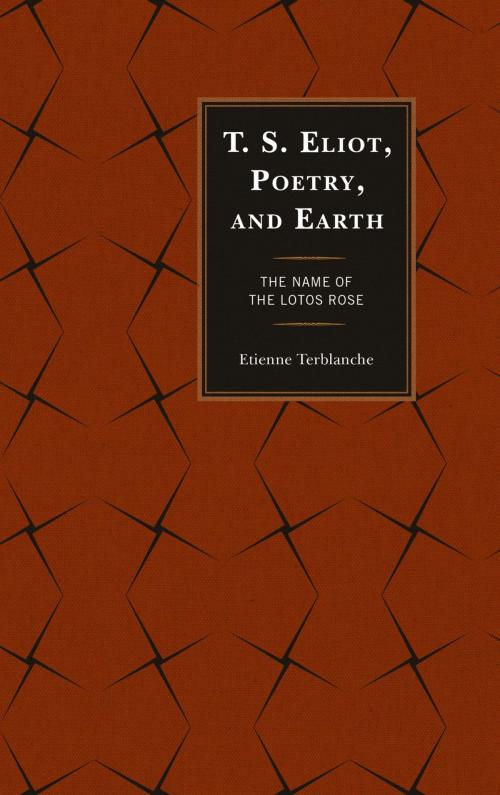T.S. Eliot, Poetry, and Earth
The Name of the Lotos Rose
Fiction & Literature, Literary Theory & Criticism, Poetry History & Criticism, European, American| Author: | Etienne Terblanche | ISBN: | 9780739189580 |
| Publisher: | Lexington Books | Publication: | May 12, 2016 |
| Imprint: | Lexington Books | Language: | English |
| Author: | Etienne Terblanche |
| ISBN: | 9780739189580 |
| Publisher: | Lexington Books |
| Publication: | May 12, 2016 |
| Imprint: | Lexington Books |
| Language: | English |
T. S. Eliot enjoyed a profound relationship with Earth. Criticism of his work does not suggest that this exists in his poetic oeuvre. Writing into this gap, Etienne Terblanche demonstrates that Eliot presents Earth as a process in which humans immerse themselves. The Waste Land and Four Quartets in particular re-locate the modern reader towards mindfulness of Earth’s continuation and one’s radical becoming within that process. But what are the potential implications for ecocriticism? Based on its careful reading of the poems from a new material perspective, this book shows how vital it has become for ecocriticism to be skeptical about the extent of its skepticism, to follow instead the twentieth century’s
most important poet who, at the end of searing skepticism, finds affirmation of Earth, art, and real presence.
T. S. Eliot enjoyed a profound relationship with Earth. Criticism of his work does not suggest that this exists in his poetic oeuvre. Writing into this gap, Etienne Terblanche demonstrates that Eliot presents Earth as a process in which humans immerse themselves. The Waste Land and Four Quartets in particular re-locate the modern reader towards mindfulness of Earth’s continuation and one’s radical becoming within that process. But what are the potential implications for ecocriticism? Based on its careful reading of the poems from a new material perspective, this book shows how vital it has become for ecocriticism to be skeptical about the extent of its skepticism, to follow instead the twentieth century’s
most important poet who, at the end of searing skepticism, finds affirmation of Earth, art, and real presence.















